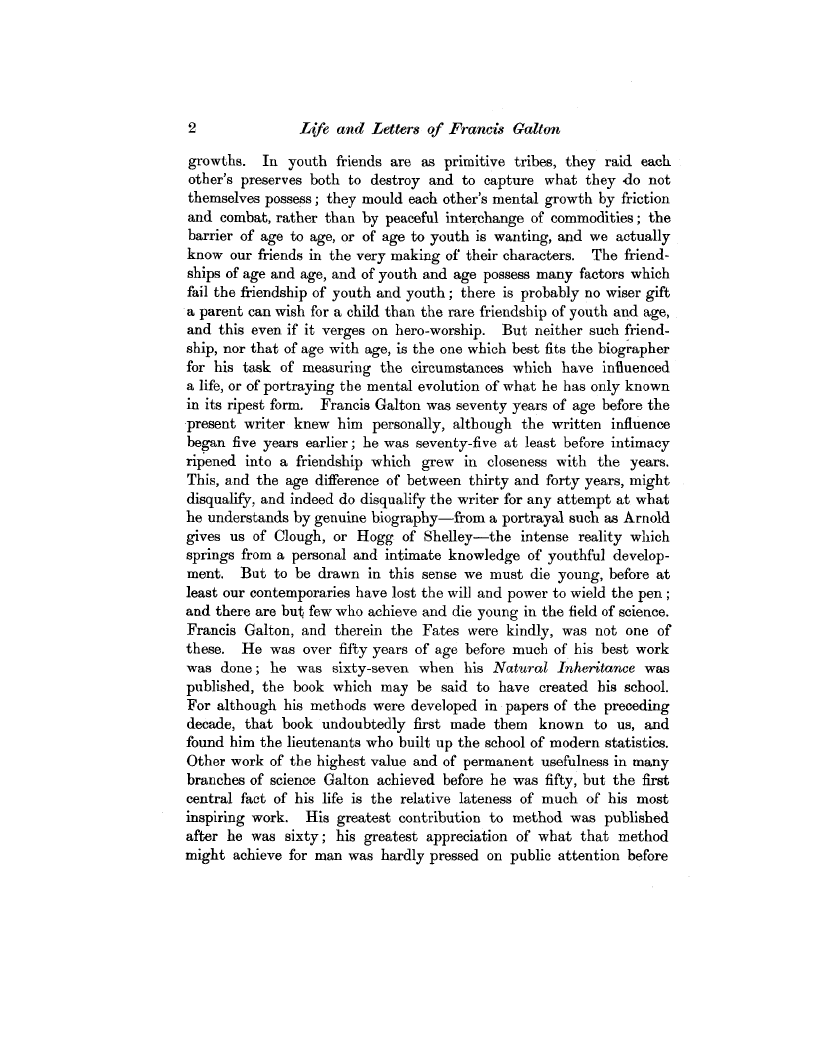2 Life and Letters of Francis Galton
growths. In youth friends are as primitive tribes, they raid each other's preserves both to destroy and to capture what they do not themselves possess ; they mould each other's mental growth by friction and combat, rather than by peaceful interchange of commodities ; the barrier of age to age, or of age to youth is wanting, and we actually know our friends in the very making of their characters. The friendships of age and age, and of youth and age possess many factors which fail the friendship of youth and youth ; there is probably no wiser gift a parent can wish for a child than the rare friendship of youth and age, and this even if it verges on hero-worship. But neither such friendship, nor that of age with age, is the one which best fits the biographer for his task of measuring the circumstances which have influenced a life, or of portraying the mental evolution of what he has only known in its ripest form. Francis Galton was seventy years of age before the present writer knew him personally, although the written influence began five years earlier ; he was seventy-five at least before intimacy ripened into a friendship which grew in closeness with the years. This, and the age difference of between thirty and forty years, might disqualify, and indeed do disqualify the writer for any attempt at what he understands by genuine biography-from a portrayal such as Arnold gives us of Clough, or Hogg of Shelley-the intense reality which springs from a personal and intimate knowledge of youthful development. But to be drawn in this sense we must die young, before at least our contemporaries have lost the will and power to wield the pen ; and there are but few who achieve and die young in the field of science. Francis Galton, and therein the Fates were kindly, was not one of these. He was over fifty years of age before much of his best work was done ; he was sixty-seven when his Natural Inheritance was published, the book which may be said to have created his school. For although his methods were developed in papers of the preceding decade, that book undoubtedly first made them known to us, and found him the lieutenants who built up the school of modern statistics. Other work of the highest value and of permanent usefulness in many branches of science Galton achieved before he was fifty, but the first central fact of his life is the relative lateness of much of his most inspiring work. His greatest contribution to method was published after he was sixty ; his greatest appreciation of what that method might achieve for man was hardly pressed on public attention before
